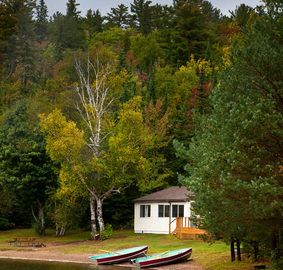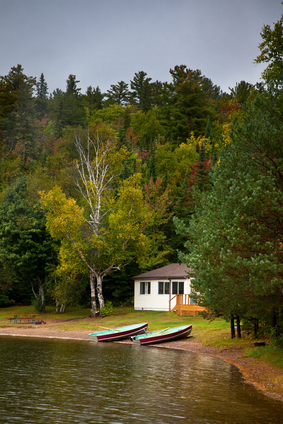Special to the Financial Independence Hub
The summer is quickly approaching and for many Canadians that means one thing: cottage season.
While many parents envision leaving the family cottage as part of their inheritance one day, with the value of cottages often appreciating since purchase, there’s also the risk of bestowing the legacy of a large tax bill.
To help make sure you’re leaving an inheritance of cottage relaxation and not taxation, here are three strategies you can discuss with your financial advisor when planning your cottage legacy. These strategies are available to you while you are alive, and there are various other strategies that can be implemented on your death in your will.
• Co-own with your Kids
Adding your children to the deed and making them co-owners of your cottage could help defer capital gains tax and save money. For example, if your cottage value has increased over time, it would trigger a capital gain on the portion of the cottage that your children now own and you would pay the tax on that now. Down the road, your kids would only pay tax on the capital gains owing on the remaining portion of the cottage you own when you die. There is, however, a risk with this approach. Since you are no longer the sole owner of the cottage, any issue your child is experiencing may also affect you. For example, if your child has creditors or is going through a divorce, the cottage now becomes part of the asset mix and could be up for grabs.
• Gift It Now
A second option is to give the cottage to your children as a gift. This would also trigger a capital gain. While you would have to pay the entire capital gains tax up until the time you gifted the cottage, you would also not be responsible for further gains if the property value continues to go up. On the flip side, if the value goes down, you could be paying more now than you need to. Also, similar to the first strategy, if your kids become owners of the property before you die, you are no longer a sole owner and could therefore lose control of the cottage.
• Spread it Out
The Canada Revenue Agency has special rules that allow you to pay a capital gain over five years and utilize marginal tax rates referred to as a the capital gains reserve rules. To implement this strategy it is a best practice to structure the transfer as a “sale” and formalize a promissory note (aka I.O.U.) equal to the value of the cottage.
The note would be worded in such a way that the parent could collect the proceeds from the sale over a certain amount of time (e.g. five years). The children do not need to actually pay the parent and the parent can forgive the note in their will, meaning that the cottage will be owned by your children with no further taxes owing.
Given the risks involved, such as potential family issues with the children by dealing with the capital gains tax today, you may decide that it is best to deal with the tax at death by utilizing other strategies (e.g., life insurance to pay the tax bill). Regardless of what you strategy you choose, make sure you discuss the different options with your financial advisor to decide what works best for your family.
 Tares Basraon is a Senior Manager with Wealth Advisory Services for TD Wealth.
Tares Basraon is a Senior Manager with Wealth Advisory Services for TD Wealth.




